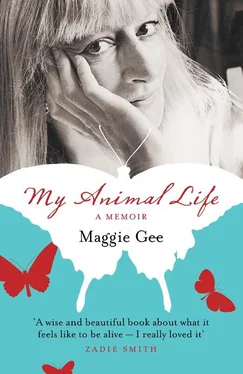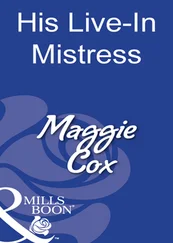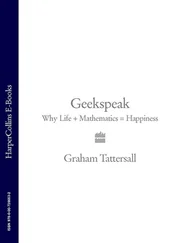Once we could measure our value at the fireside. The link between story and body was close, and storytellers were close to their audience. But twenty-first-century stories are encoded in books, which are products. The audience aimed for must be ever larger, because the middlemen, publishers, want to make money. Not that they really know what will sell; they are gamblers, the gurus of sales and marketing to whom commissioning editors defer, but all the same, it’s hard to get past them. There is no direct interface where ordinary readers can gauge our skill at storytelling, where we can find and meet our audience — just the vast faceless spaces of the net, where all of us are equally lost.
I saw how late capitalism was transforming the book trade. As the giant firms sucked up the independents, they aimed to sell more copies of fewer books. Easier for them to expend effort on a small range of easy-to-sell products. The logic of copying, of repetition. The technologies of advertising and mass reproduction have grown lethally effective since Walter Benjamin. The more a name is heard or copied, the more, sub-liminally, people think it’s the best. The logic of it all was leading big publishers away from writers and towards celebrities. It cost no money to promote the already-famous; they advertise themselves, by falling out of clubs. Thence the tyranny of the big book chains and their charts, overrun by celebrity novels and autobiographies. Perfectly respected and serious publishers talked proudly about ‘the death of the mid-list’, to show they too were out there, swimming with sharks; but really they were just making sad boasts about the loss of variety and interest.
(I was simplifying, but the chill I felt could not be dispersed by my own morning swim.)
But couldn’t we fall back on our critical gatekeepers, the literary editors, the reviewers? Would quality be saved by the books pages?
I knew there were good critics and valiant editors. I had often been kindly treated by both. Yet what I saw — what I still see now — is in fact a world of progressive illusions, where adjectives build upon one another. A writer is praised, and wins a big prize: a quantum leap in his career has happened. The praise will now increase, and there will be more prizes. Soon he will be ‘a great writer’ (when I look at my own generation, the ‘great’ are mostly men, and I say this as a woman who reads and admires both genders). Partly it’s the psychological effect I have mentioned, where people judge in the light of their prior expectations. The ‘frame’ is all-important to what we think we see. Yet if you try to lay aside the frame, and look hard at the work, book by book, there may have been no improvement at all. If anything, there has been a falling off. But we have to believe, because others do. Conformism is a safe stratagem. That (truly great) genius Hans Andersen said it all in his story, ‘The Emperor’s New Clothes’, where no one had the courage to break the illusion that the emperor had a splendid new set of garments (in fact he was naked, had been conned by flash tailors who told him they were using a magical new cloth, but it took a small child to believe his own eyes and tell the truth, that the emperor had no clothes — all the adults in the crowd were in thrall to consensus).
Critics like their towers, their increments, their sense that they are watching a success story, that their own praise can add to it. It becomes taken for granted that certain names are landmarks, and the more they are repeated, the more it seems true, for they start to come easily to everybody’s lips. Once again, the power of repetition; the relief of simplifying a landscape. But it doesn’t prove they’re good. They are merely successful.
I saw it as a jungle, from that time on, where there were few disinterested observers. That’s what we need, since there are no literary angels; we want teams of skilled taxonomists, Nabokovian naturalists, protected like jurors from prevailing opinions, ideal readers who sift slowly and carefully and add to knowledge with what they tell us. That’s not what we get. We get reviewers, rushing too fast to earn their pittance, trying to be funny or shocking or rude or do anything that will get them noticed. They write for themselves, not to describe the books. Often they are writing about themselves. They don’t see what they do as a service to literature; it’s journalism; the books are fodder. It was a sinister, irrevocable step when the names of reviewers first became larger than the names of the authors they were writing about. (But reviewers also have to make their names. They are struggling too. Why should I expect them to be different? We are all out for our evolutionary advantage.) And the critics’ own position is no longer secure, for the arts pages in the newspapers are shrinking, the literary editors are being sacked, the newspapers themselves are fleeing to the net because the young no longer buy the physical papers.
So what are writers, in this jungle? I wondered. (I meant, when we were not at home writing, that private, low-key act, the core of it all, which I was forgetting in my cynical inventory. The writing, which can’t be faked, or stage-managed, unless you’re a celeb and pay someone else to do it. The work, the work, I had to cling on to that, for the world I was seeing was very bleak.)
In the jungle, writers are opportunists. We are showoffs, trying to display our coats. We need to be the most beautiful and youthful, we need to have novelty, we need to have mates: a pack or a cohort to shoulder us through, to rush us on upwards through the trees. If we fall, we must be sure to get up quickly, for if we lie there, bleeding, we will die down there. And we, too, are here for our own advantage, struggling for the light of fame or money, for we, too, have to pay the bills, we, too, have young to bring up, and set on their own path to evolutionary advantage.
(Yet there was something else: it was about the work. All about the work . I would return to that.)
Of course, some good writers do well in the jungle. Of course, reviewers sometimes get it right. But it isn’t inevitable; it isn’t even normal. If you want to know where the best writers are, you can’t tell by reading the literary pages, or going to big bookshops, or looking at prize lists. You must read for yourself, and think for yourself, or listen to voices you know and trust: private readers: truth-tellers.
I still think most of that analysis is true. And yet it left out a lot of ‘human nature’, it left out the joy and pleasure people get when they find something they genuinely like, and publishers, booksellers, critics are people; it left out the fact that, alongside the conformism that biologists tell us serves most people well (which direction do you run in when a flood is coming? No time to think, just follow the others), there are always people who like to be different, who are sceptical and original. Independent publishers like Saqi and Telegram, Profile and Tindal Street Press, Salt and Comma; independent booksellers like Foyles or John Sandoe’s or my locals, Willesden Books, Kilburn Books, the Queen’s Park Bookshop.
And then there is the work. Come back to that. Get up on the wire, walk the line in the sunlight. Breathe, concentrate, find the nerve. What is it about? Something says ‘my soul’ , and I am uneasy, and turn away, embarrassed. My being-in-the-world expressed as performance. The rhythm of my body imprinting on the page, what my eyes have seen, what my heart has lived. And the movement of my hand lets me share it with others. I am here, now. I am writing the truth of it. For most writers, work is not just a product.
My book had fallen foul of the market, but rereading it, I believed in it. The question was, where could I go? How could I get my portrait of Britain out to the British?
Читать дальше












